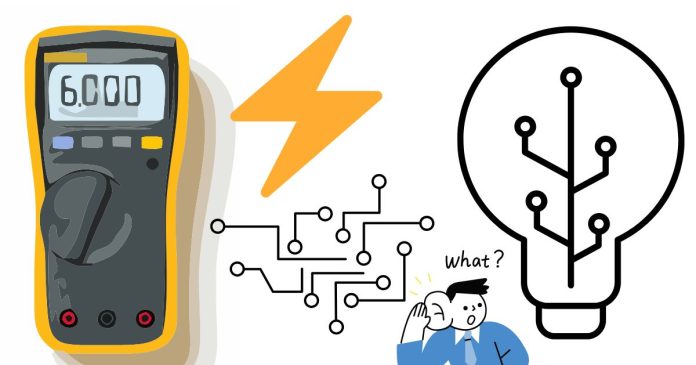Voltage is Measured in What Unit?
Voltage, a fundamental concept in the field of electricity and electronics, is a measure of the electric potential difference between two points in an electrical circuit. It is essentially the “pressure” that pushes electrical charges through a conductor. But what unit is used to measure voltage?
The Unit of Voltage: The Volt
Voltage is measured in volts (symbol: V), named after the Italian physicist Alessandro Volta (1745–1827). Volta is credited with the invention of the first chemical battery, the voltaic pile, which provided the foundation for modern electrical science.
What Does One Volt Represent?
One volt is defined as the difference in electric potential that drives one ampere of current through a conductor with a resistance of one ohm. Mathematically, this is expressed as:
V=I×RV = I \times R
Where:
- VV is voltage in volts,
- II is current in amperes,
- RR is resistance in ohms.
In practical terms, 1 volt is the potential difference that results in the transfer of 1 joule of energy per coulomb of charge.
How Is Voltage Measured?
Voltage is typically measured using a device called a voltmeter or a multimeter. These tools are connected across two points in a circuit to determine the electric potential difference between them. Voltage measurements can be classified as:
- Direct Current (DC) Voltage: Found in batteries and many electronic devices.
- Alternating Current (AC) Voltage: Found in household power outlets and power grids.
Common Voltage Levels
Voltage levels vary widely depending on the application:
- Low Voltage (Below 50V): Used in small electronics like mobile phones and laptops.
- Medium Voltage (50V to 1,000V): Found in industrial systems and small power grids.
- High Voltage (Above 1,000V): Used in power transmission systems.
Why Is Voltage Important?
Voltage plays a critical role in determining the behavior of electrical systems. It dictates how much energy can be transferred and influences the design of electrical circuits. A higher voltage often allows for the efficient transfer of power over long distances, which is why power transmission lines operate at high voltages.
Voltage is a key parameter in the study of electricity, measured in the unit of volts. Its understanding is crucial for anyone working with electrical systems, from basic household wiring to advanced electronic devices. Whether you are a student, an engineer, or simply curious about the principles of electricity, appreciating the role of voltage and its measurement helps demystify the world of electrical energy.


